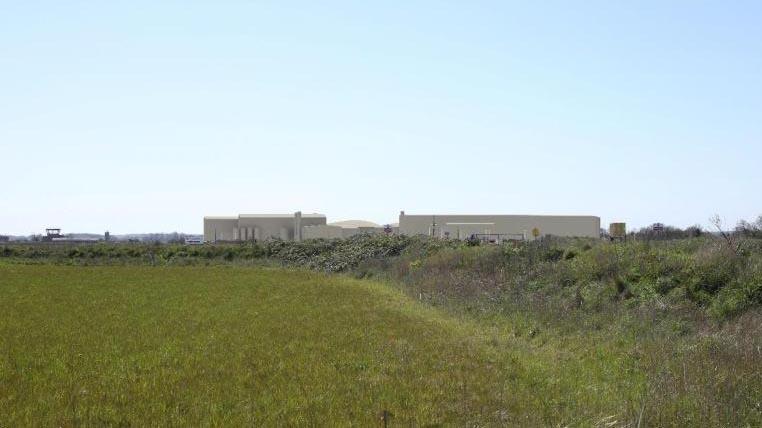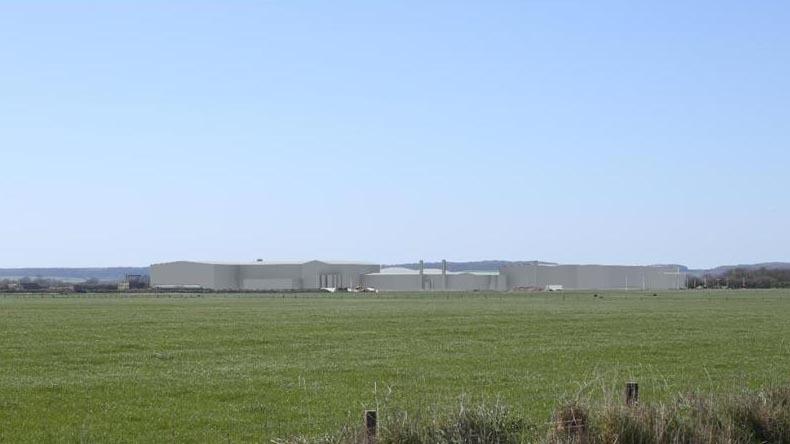Renewable energy plant proposed for former airfield

The company says the plant would make a "substantial" contribution to renewable energy production
At a glance
A company wants to build an anaerobic digestion plant at Manby Airfield, near Louth
It would breakdown organic matter to generate energy
The applicants claim it would produce enough power to heat 54,000 homes
It would also produce liquid carbon dioxide and organo-mineral fertiliser
- Published
Plans have been submitted to build a renewable energy plant near Louth in Lincolnshire.
The proposal said the facility on the former Manby Airfield would generate enough biomethane to heat almost 54,000 homes.
It would use a process known as anaerobic digestion which breaks down organic materials without oxygen to produce energy for electricity and heating purposes.
Lincolnshire County Council has not set a date for the application to be considered.
Manby BGE, which is behind the proposal, said the plant would use 40,000 tonnes of straw-based cattle manure, 134,000 tonnes of chicken litter, and 130,000 tonnes of straw a year, sourced from local farms.
It said it expected to generate approximately 7,200 normal cubic metres of biomethane per hour for the National Grid, along with 65,000 tonnes of cleaned liquid carbon dioxide and 165,000 tonnes of organo-mineral fertiliser.
The plans include storage facilities, a fertiliser manufacturing plant, gas production equipment and offices.

The plant would breakdown organic matter to produce energy
Manby BGE claimed the plant would reduce global carbon emissions associated with synthetic fertilisers and had the potential to contribute significantly to renewable energy production.
"Based on the average annual gas consumption per dwelling in the UK, the biomethane produced annually by the proposed development has the potential to heat nearly 54,000 homes or a city larger than Lincoln," it added.
Follow BBC East Yorkshire and Lincolnshire on Facebook, external, Twitter, external, and Instagram, external. Send your story ideas to yorkslincs.news@bbc.co.uk, external.